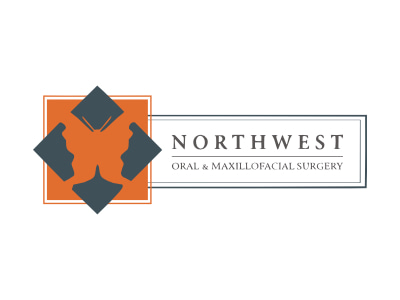- Categories :
- More
Dental Implants vs. Dentures: Why Implants Are the Superior Choice

Choosing between dentures and dental implants is something many Americans will have to do as some 200 million people in the U.S. are missing at least one tooth, and 35 million Americans do not have any teeth.
Losing teeth can be a challenging experience, affecting not only your smile but also your ability to eat, speak, and feel confident.
“Most people want to replace missing teeth simply to regain their smile –and that’s a great reason. However, missing teeth can have a big impact on your life in a lot of ways,” explains the University of Chicago College of Dentistry. “While dentures are still a good option for many, modern dental techniques provide alternatives to traditional dentures to replace missing teeth, including implant-supported dentures.”
While both serve the purpose of restoring your smile, dental implants offer significant advantages that make them the superior choice for many patients.
In this article, we'll explore the differences between dentures and implants, helping you understand what makes implants the best solution for your tooth replacement needs.
Understanding Dentures: From Ancient Egypt to George Washington
Dentures have been around long enough that Founding Father George Washington wore them!
For the record: America’s first president did not wear dentures made of wood but rather a combination of dentures over the years made of human teeth, cow teeth, horse teeth, ivory, lead-tin alloy, copper alloy, and silver alloy.
Dentures are removable appliances that replace missing teeth and surrounding tissues. They can be full dentures, replacing all teeth in the upper or lower jaw, or partial dentures, which replace only a few missing teeth.
Dentures have a long and fascinating history, dating back thousands of years. Ancient Egyptians used human teeth threaded with gold wire to create rudimentary dentures. In 16th century Japan, wooden dentures called "hitoe-gushi" were crafted.
Porcelain dentures were introduced in the late 1700s and in the mid-1800s, Vulcanite, a hardened rubber, revolutionized denture bases, making them more affordable and better fitting.
The Pros and Cons of Dentures Today
Today, modern dentures are typically made from acrylic resin for the base and porcelain or acrylic for the teeth, providing a balance of durability, comfort, and natural appearance.
Pros and cons of dentures:
Pros:
- Less expensive upfront cost.
- Non-invasive procedure.
- Can replace multiple teeth at once.
- Have improved significantly in comfort and appearance over the years.
Cons:
- May slip or move while eating or speaking.
- Require regular adjustments and replacements.
- Can cause discomfort and irritation.
- May lead to bone loss in the jaw over time.
- Require removal for cleaning and maintenance.
- Don’t provide the same biting force as natural teeth or implants.
While dentures have come a long way from their historical predecessors, they still have limitations compared to modern alternatives like implants. The next section will explore how implants offer solutions to many of the drawbacks associated with traditional dentures.
Exploring Dental Implants
Dental implants are artificial tooth roots made of titanium that are surgically placed into the jawbone. They serve as a strong foundation for permanent or removable replacement teeth that are designed to match your natural teeth.
While implants may seem like a modern invention, the concept of replacing teeth with artificial roots dates back thousands of years. Archaeologists have found evidence of attempted dental implants in ancient Egyptian and Mayan civilizations, where materials like seashells and carved stones were used to replace missing teeth.
The modern era of dental implants began when Swedish orthopedic surgeon Per-Ingvar Brånemark accidentally discovered osseointegration in the 1950s - the process by which bone fuses with titanium. This discovery laid the foundation for modern dental implants.
Brånemark placed the first titanium dental implant in a human volunteer in 1965.
Advancements in the 1980s (root-form implants), 1990s (imaging improvements), 2000s (computer-guided implant surgery) and today’s emerging technology (3D imaging and computer-aided design/manufacturing) have made implants more predictable, efficient, and natural-looking than ever before.
Pros and Cons of Dental Implants
Dental implants are placed into the jawbone, where it integrates with the bone over several months in a process called osseointegration.
Once healed, an abutment is attached to the implant, which serves as a connector for the custom-made crown that will replace your missing tooth.
Modern advancements in dental implant technology include:
- Surface treatments that enhance osseointegration.
- Zirconia implants for metal-free options.
- Digital smile design for precise aesthetic planning.
- Same-day implants and restorations in some cases.
- Mini implants for patients with limited bone volume.
Pros and cons of dental implants:
Pros:
- Look and function like natural teeth.
- Preserve jawbone health and prevent bone loss.
- Long-lasting and durable (can last a lifetime with proper care).
- Improve speech and eating abilities.
- Boost confidence and self-esteem.
- No need for removal or special cleaning routines.
- High success rate (over 95 percent in many cases).
- Can be used to support multiple teeth or even full arches.
Cons:
- Higher upfront cost.
- Requires surgery.
- The healing process takes several months.
- Not suitable for all patients (e.g. those with certain medical conditions or insufficient bone density).
Unlike dentures, which have been around for centuries, dental implants represent a relatively recent and significant leap forward in tooth replacement technology. Their ability to mimic natural tooth roots and preserve jawbone health has revolutionized restorative dentistry, offering patients a solution that comes closest to natural teeth in both form and function.
Comparing Implants and Dentures
Let’s compare dental implants and dentures:
Comfort and functionality:
Dental implants offer superior comfort and functionality compared to dentures. Unlike dentures, which can slip or cause discomfort, implants are firmly anchored in your jaw, allowing you to eat, speak, and smile with confidence. Implants restore nearly 100 percent of your natural chewing ability, while dentures typically provide only about 30-50 percent.
Aesthetics and confidence:
Implants look and feel like natural teeth, providing a more aesthetically pleasing result than dentures. They also eliminate the worry of dentures slipping or falling out, boosting your confidence in social situations.
Long-term oral health:
One of the most significant advantages of dental implants is their ability to preserve jawbone health. When you lose teeth, the jawbone begins to deteriorate due to lack of stimulation. Implants mimic natural tooth roots, stimulating the bone and preventing loss. Dentures, on the other hand, can accelerate bone loss over time.
Cost considerations:
While dental implants have a higher upfront cost, they often prove to be more cost-effective in the long run. Dentures require regular adjustments, replacements, and adhesives, which can add up over time. Implants, when properly cared for, can last a lifetime, potentially saving you money and hassle in the future.
|
Features |
Dentures |
Implants |
|
Comfort & Functionality |
Can slip and cause discomfort, limited chewing ability |
Firmly anchored, natural feel, near full chewing ability |
|
Aesthetics & Confidence |
Less natural look, worry of slipping/falling out |
Natural look and feel, increased confidence |
|
Long-Term Oral Health |
Can accelerate bone loss |
Stimulates bone preservation |
|
Cost |
Lower upfront cost, but requires adjustments, replacements, and adhesives |
Higher upfront cost, but potentially lasts a lifetime |
Why Choose Dental Implants?
It’s obvious that for many people the advantages of dental implants in terms of comfort, function, aesthetics, and long-term health make them a worthwhile investment:
- Permanent solution that doesn't require removal.
- Preserves jawbone health and facial structure.
- Restores full chewing ability and improves speech.
- Looks and feels like natural teeth.
- Requires no special maintenance beyond regular oral hygiene.
- Boosts confidence and quality of life.
The Dental Implant Process
Understanding the dental implant process can help alleviate any concerns you might have about choosing this tooth replacement option. While the exact timeline can vary depending on individual circumstances, the general process typically involves several steps spread over a few months.
The journey begins with a comprehensive evaluation by an oral surgeon. During this initial consultation, your oral health will be assessed, and detailed imaging of your jaw will be taken. This allows the surgeon to determine if you're a good candidate for implants and to plan the precise placement of each implant. In some cases, preparatory procedures like bone grafting or sinus lifts may be necessary to ensure there's enough healthy bone to support the implant.
The next step is implant placement surgery. This is typically performed under local anesthesia, with sedation options available for anxious patients. The surgeon will make a small incision in your gum and carefully place the titanium implant into your jawbone. After the surgery, there's a healing period of several months during which the implant fuses with your bone (osseointegration).
Once the implant has fully integrated with your jawbone, the final steps can begin. An abutment is attached to the implant, which will serve as the connection between the implant and your new tooth. Impressions are taken, and a custom-made crown is created to match your natural teeth. When the crown is ready, it's attached to the abutment by your general dentist or prosthodontist, completing your new, fully functional, and natural-looking tooth.
While the process may seem lengthy, the result is a permanent solution that looks, feels, and functions just like your natural teeth.
Northwest Oral & Maxillofacial Surgery Can Help You with a Permanent Solution to Your Tooth Loss
Although the initial investment may be higher, the lasting benefits of dental implants make them the superior choice for many patients seeking a permanent, natural-looking solution to tooth loss.
Consult with the experienced oral surgeons at Northwest Oral and Maxillofacial Surgery to learn if dental implants are right for you. Our team specializes in implant placement and can guide you through the entire process, from initial consultation to your final, beautiful smile.
Contact us today to schedule your personalized consultation and take the first step towards a confident, healthy smile that can last a lifetime.


















